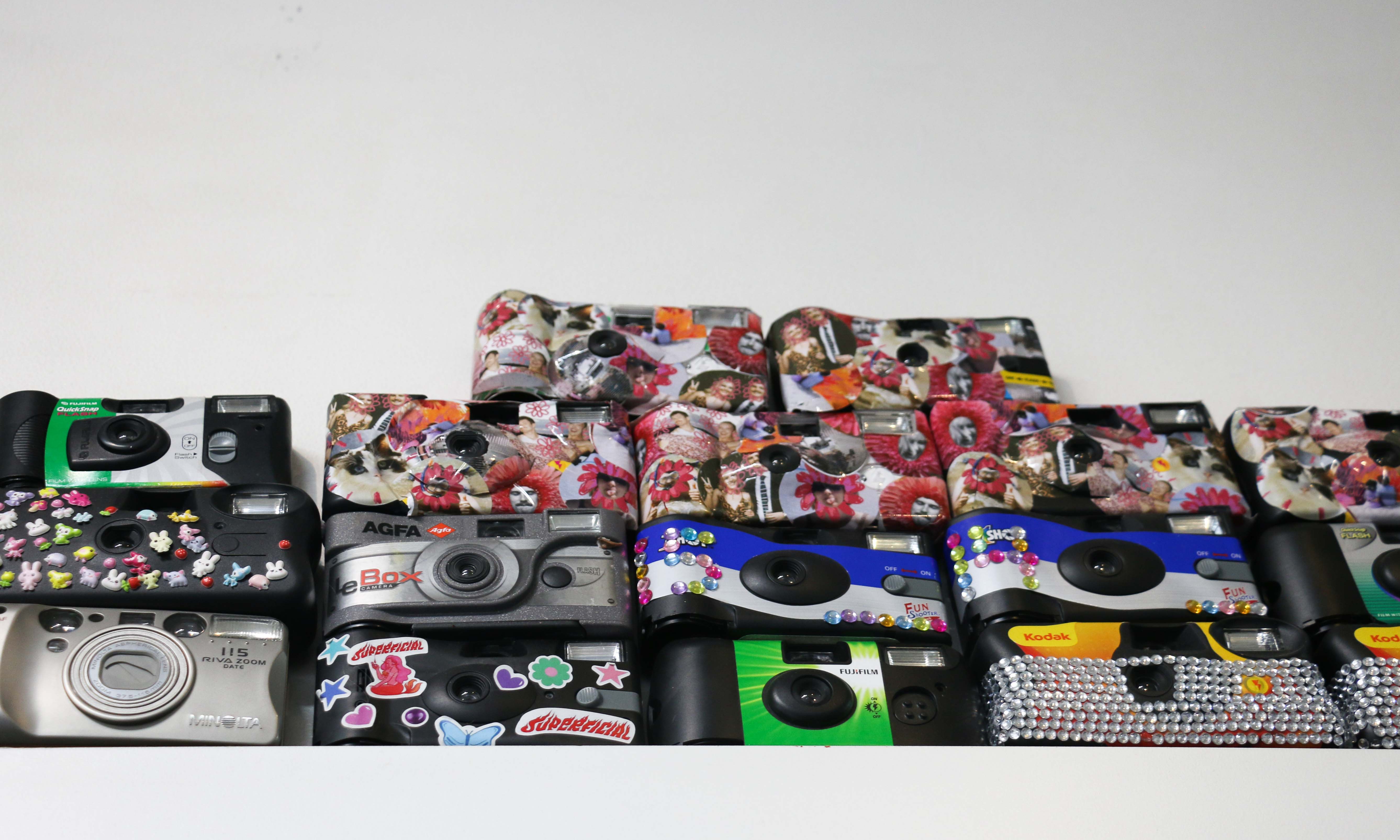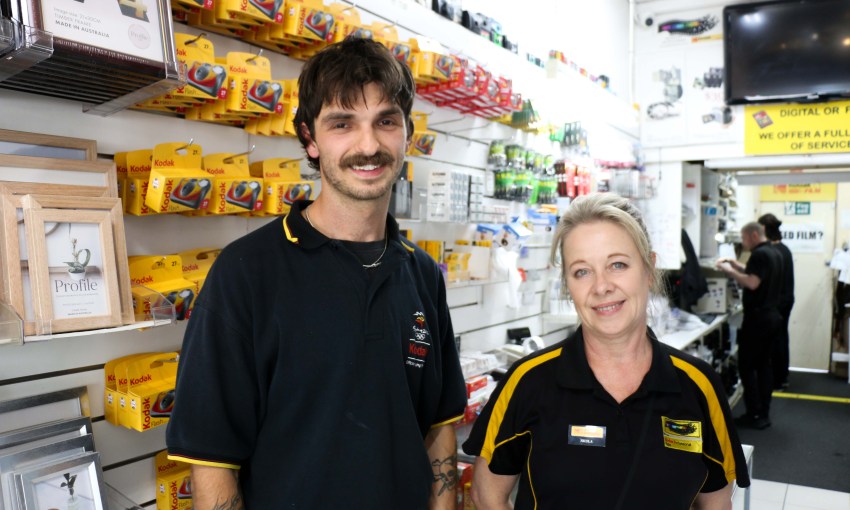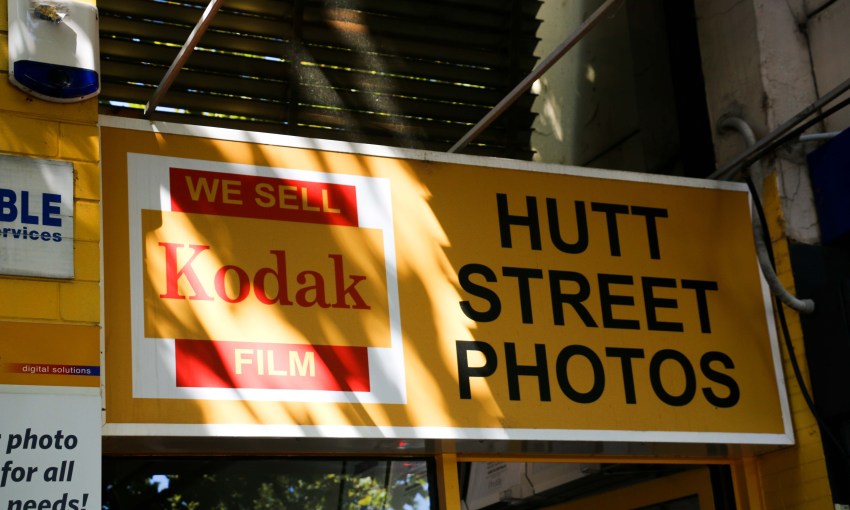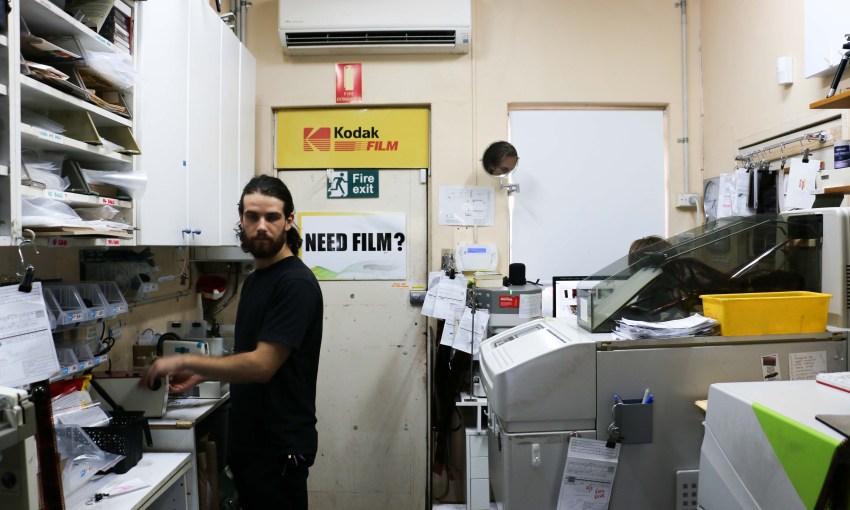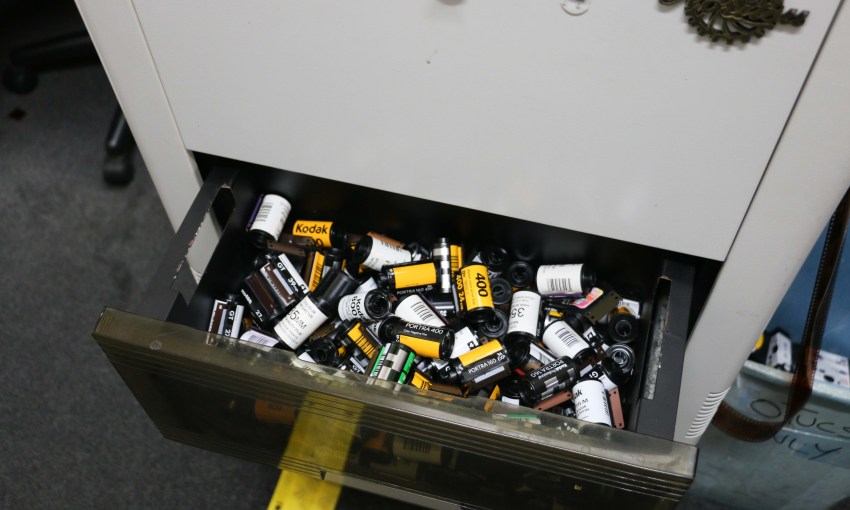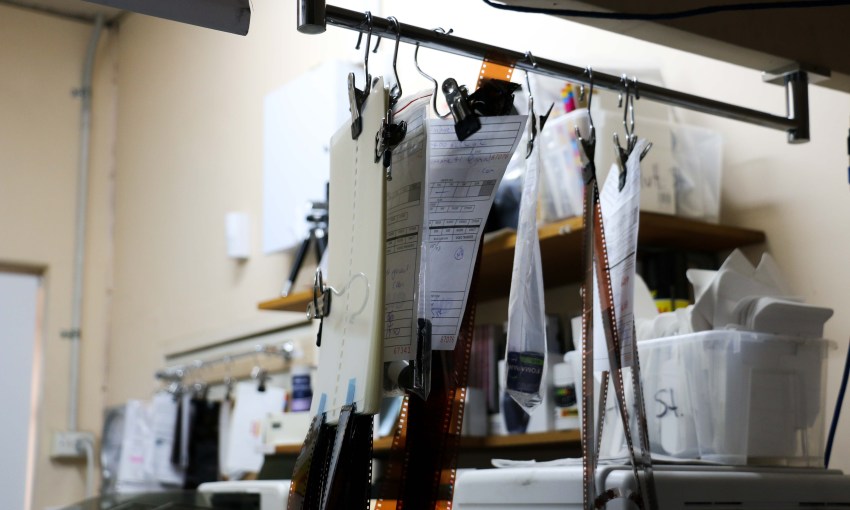Photographers seeking an analogue aesthetic in a digital world have created a national 35mm colour film shortage, but the shutterbugs at Hutt Street Photos are doing their best to meet demand.
Camera shops can’t keep up with the image economy
Disposable cameras and expired rolls of film line the upper shelf skirting Hutt Street Photos’ tiny inner perimeter.
Some of the cameras are plain Kodaks – disposable black boxes wrapped in yellow jackets – while others are personalised, bedazzled with silver rhinestones and kitten stickers.
On the day we visit, six employees are scattered throughout the store, which is located in the city’s southeastern pocket. Some wander the shop floor, where it’s their job to tend to customers dropping off film, and answer any questions they may have, while out the back, others are hunched over clunky machinery, processing the endless stream of film.
Out back, long rolls of brown negatives hang from bulldog clips like ribbons of human memory. There are birthdays, trips to the beach and special time spent with loved ones. (Ever the professionals, HSP’s back-of-house staff are occasionally delivered intimate photos, which they process and move on from quickly.) There are also VHS machines and camcorders in abundance. Stepping into the rear of the store is a time warp back to the ’90s.
Jackson Thornbury, an employee of Hutt Street Photos, says that three years ago the shop processed fewer than 100 rolls of film a day. “We thought 100 was a great, great day,” he says.
Now, they’re doing anything from 150 to 250 per day. On a “really good day”, Jackson says they develop roughly 31 rolls per hour.
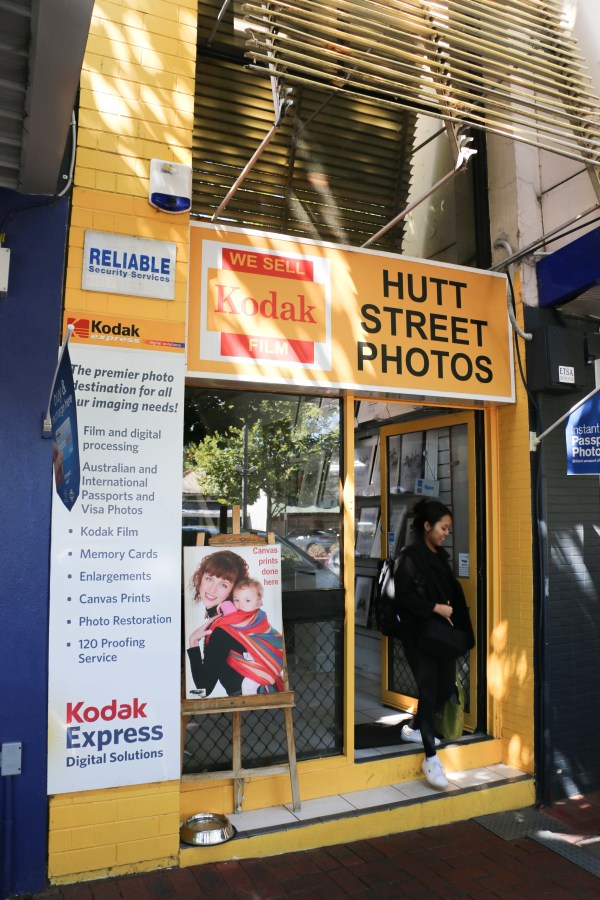
A happy customer exiting Hutt Street Photos
Adelaide, like the rest of the world, is experiencing unprecedented demand for 35mm colour film. Kodak Alaris, a British manufacturer of digital imaging and photography products, tweeted in October last year the company hired 300 extra staff over 18 months to keep up with the renewed interest in film photography.
Photography blog PetaPixel has also reported Japanese company Fujifilm is facing 35mm colour film shortages due to limited raw materials and skyrocketing demand.
CityMag visited other postcode 5000 photography shops – Camera House, off Rundle Mall, and Adelaide Photo Factory – and were told at each location they are either not selling colour 35mm film because they don’t have it, or are rationing rolls: two per customer. The rest securely hidden behind the counter.
Camera House at the Central Market, which contacted CityMag after the publication of this article, wrote in to let us know they have 35 different types of 35mm colour film in stock, as well as a range of black and white options. But they are an exception to the otherwise sparse retail offering in the city.
On the day we visit Hutt Street Photos, which displays all the stock they have, they’ve sold out of colour 35mm rolls, but have stocked up on black and white.
And it’s not only negative film that’s coming into short supply. Jackson says “the chemistry, the paper, [and] the material used to make the film” are increasingly difficult to find.
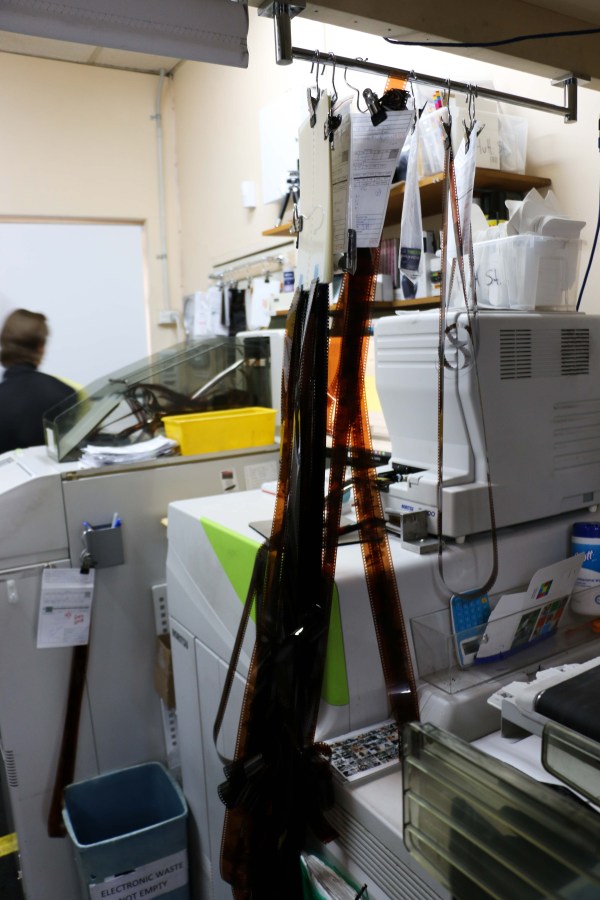
Ribbons of memories
New here? Sign up to receive the latest happenings from around our city, sent every Thursday afternoon.
In addition to this, because no new processing machines are being manufactured, the devices Hutt Street Photos uses to get through the kilometre of film it sees each week are old, retrofitted and expensive to obtain and maintain.
Jackson says he’s aware of “backyard” operations which use less traditional processing gear, but he hasn’t noticed any new “commercial businesses opening up”. Though this is a trend that has gained pace on the eastern seaboard, in Melbourne and Sydney.
Hutt Street Photos receives a delivery of new stock monthly, but word amongst photographers and photo shop workers is demand will only begin to be met next summer. “We’ve been promised so much by our suppliers: ‘It’s gonna be cool; we’ve got stuff coming. Shipment’s coming. Orders are in’. The end of the year, hopefully,” Jackson says. “I’m hoping and praying for the end of the year.”
Because of the high demand, an analogue film black market has arisen. Jackson and Nicola have only seen two knock-off rolls in rebranded disposable disposable cameras over the last two years, but the nasty negatives can have a massive impact on a photo shop’s operations. The rolls ruin the chemistry of the processing machines, which means “you have to do a full dump of the chemistry and clean all the components,” Jackson says.
Sellers and photographers have become so desperate, Jackson has even seen motion picture film used.
Although Hutt Street Photos opened its doors in 1999 and specialises in selling used camera gear, the business does look to the future. When Jackson started working at the boutique shop and photo lab three years ago, he immediately saw the value in ramping up its Instagram account to connect people to its products and services.
View this post on Instagram
Social media appears to also be a driver of demand for film photography. Jackson says most of the shop’s customers don’t want physical photographs after their rolls are processed. They mostly ask for scans. “So we’re digitising film, processing it; we’re not printing it,” he says. “We’re skipping that step.”
On our way out, we point out the dispensed cameras that line Hutt Street Photos’ walls, and note that much like film photos, they all have character.
Nicola tells us they’ll soon be removed. The owners don’t like them, and see them as clutter.
But Jackson, the young hobbyist photographer who spends his day surrounded by film, thinks they’re great. Maybe because he sees them through a youthful eye.
